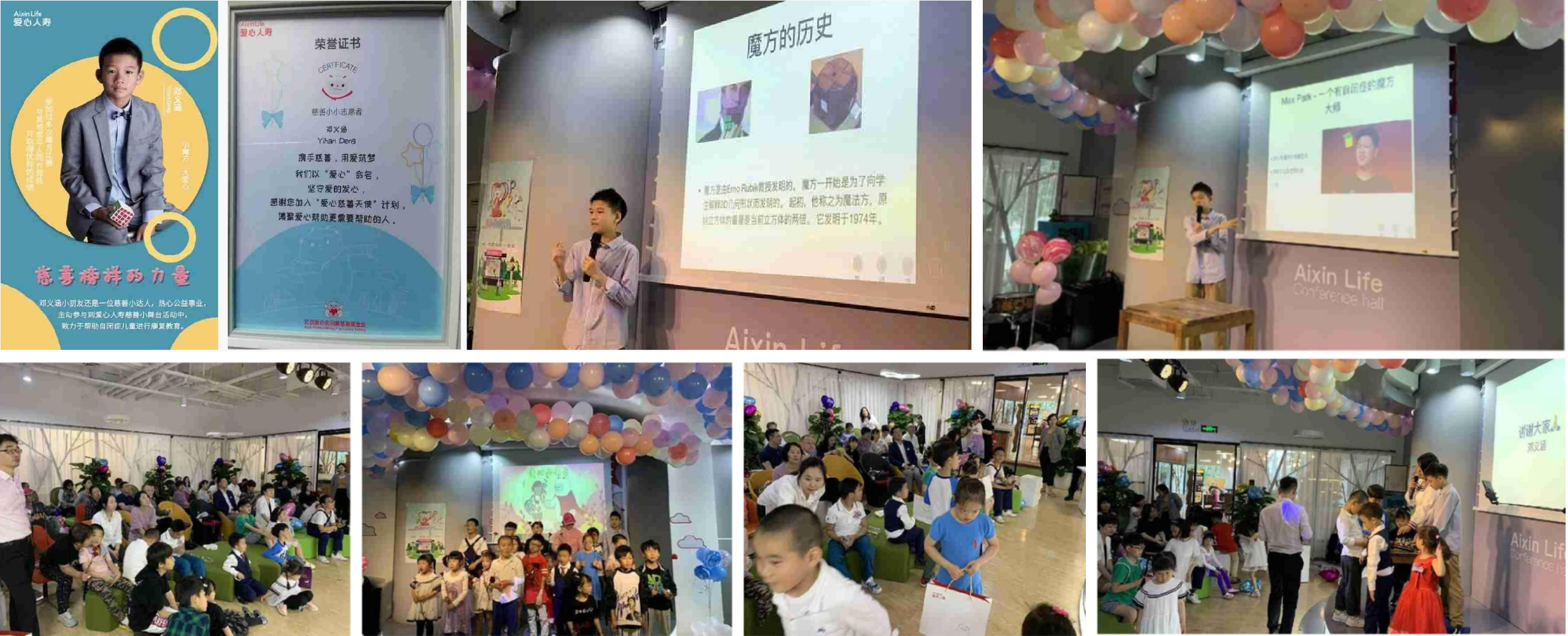Small Cube Big World
Teach individuals with autism how to play with Rubik's cube.Ethan is a Rubik’s cube enthusiast, he has won the 2019 Championship of the WCA Baoji Junior category in China. Max Park, the 2017 and 2023 Rubik’s Cube world champion and a 69-time world record holder, who is an autistic, his father mentioned in an interview that the Rubik’s cube has significantly improved Max’s autism symptoms. Max is now more willing to interact and communicate with other Rubik’s cube enthusiasts, which has positively impacted his social engagement. His story has inspired Ethan to establish "Small Cube Big World" school club in 2019, teaching Rubik's Cubes to hundreds of autistic children.
Structure and Predictability Children with autism often enjoy regular, predictable activities, and the ways in which Rubik’s cubes and building blocks are played usually match this preference. These toys provide clear structures and steps, allowing children to gain a sense of satisfaction and accomplishment through repetition. |
Sensory and Motor Skill Satisfaction Building blocks and Rubik’s cubes can promote fine motor skill development while providing tactile and visual stimulation. Studies have found that children with autism may have specific needs in fine motor skills, and playing with these toys can help improve coordination and hand control. |
Focus and Problem-Solving Skills When children with autism engage in these structured tasks, they often display a high level of focus. Research suggests that children with autism can demonstrate greater focus and perseverance on certain tasks, possibly due to their sensitivity to details and tendency to focus intensely on particular interests. |
Reduced Social and Language Pressure Playing with these toys typically doesn’t require verbal communication or complex social interaction. As a result, they offer children with autism a relatively independent space to explore at their own pace. |
- 2024
November 2024
The IntraSpectrum Club sponsored the Neurodiversity Comic Con! At the event, Ethan hosted a Rubik's cube teaching and promotion activity, encouraging more children to enjoy solving the cube!
.jpg)
July 2024
The IntraSpectrum Club visited the Gillen Brewer School, a private special education institution recognized for its inclusive approach to learning. During the visit, club members toured the school, led a Rubik’s Cube teaching session with students, and interviewed Rebecca Skinner, the Head of School.

February 2024
At the Westchester American Chinese Association’s Lunar New Year Event, IntraSpectrum hosted a booth to raise awareness of their mission. Senator Stewart-Cousins and Westchester County Executive Mr. Latimer joined the celebration.
.png)
- 2023
May 2023
Ethan joined Project Ready, a nonprofit organization, as a tutor, teaching autistic children how to solve the Rubik’s Cube.

- 2022
April 2022
The “Small Cube Big World” Club organized a painting exhibition for autistic children at WAB School. The exhibit showcased artwork throughout the upper, middle, and lower school buildings. Among the pieces were two paintings previously displayed at the Olympics closing ceremony.
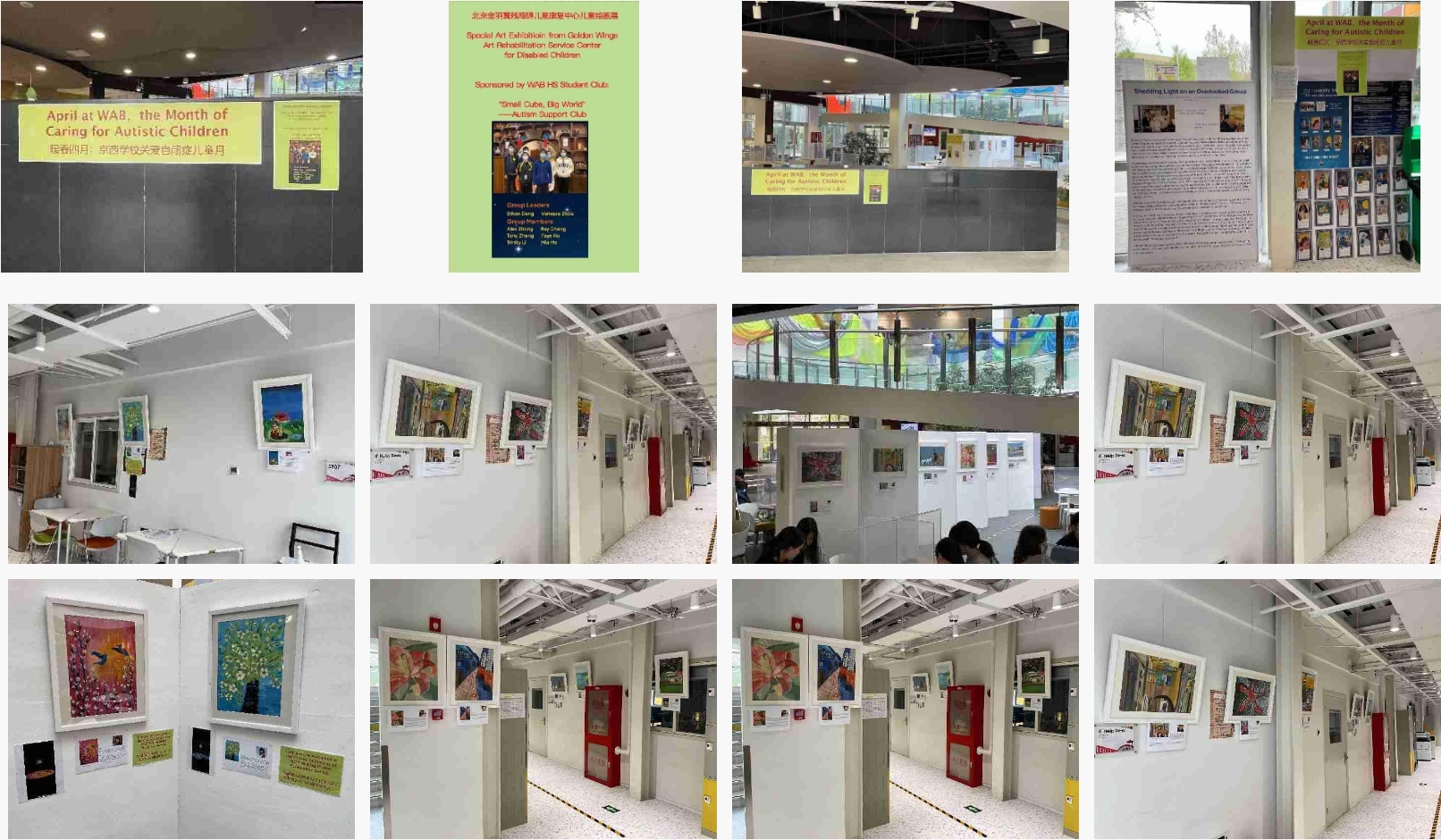
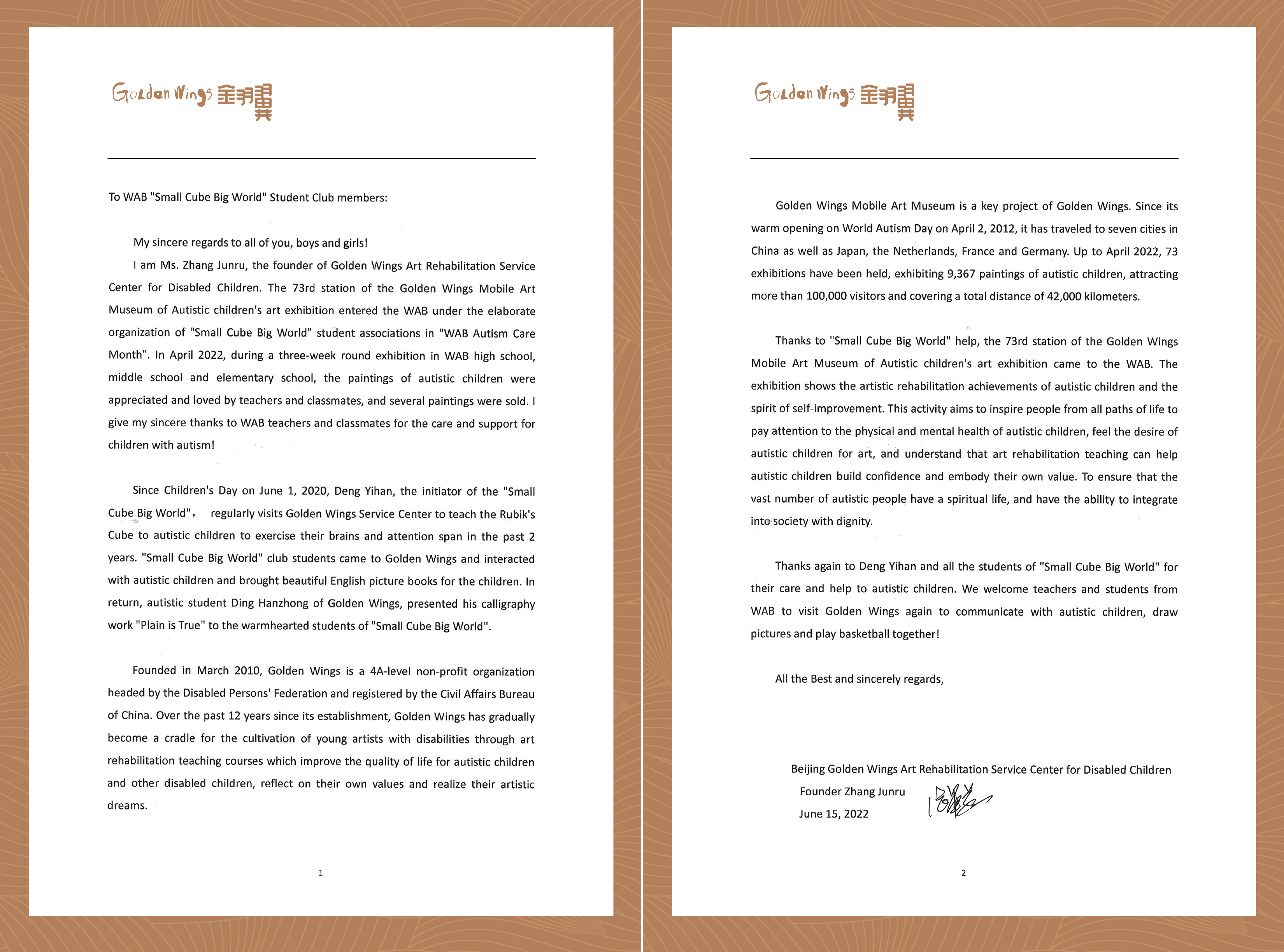
April 2022
On World Autism Day, the club held a charity painting sale to support Golden Wings children. The event raised CNY 54,000 through the sale of 18 paintings.

- 2021
October 2021
The “Small Cube Big World” Club was founded, starting with six members. Their first activity was a visit to Golden Wings.

May 14, 2021
Just before National Disability Day, Ethan visited Golden Wings to introduce new friends to the Rubik’s Cube.
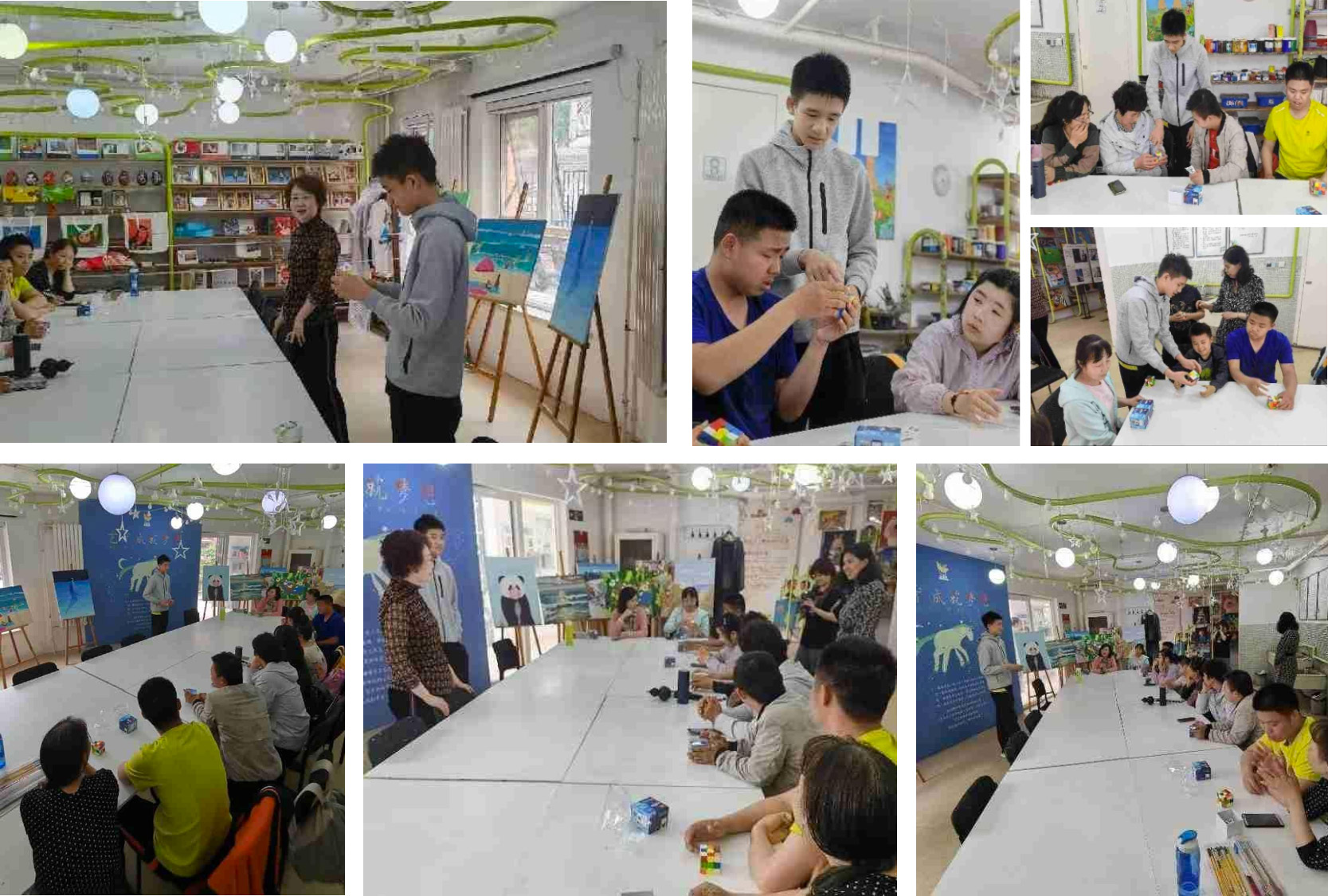
March 22, 2021
Since the onset of the pandemic, Golden Wings had paused its teaching activities until March 2021. Ethan visited to share the Rubik’s Cube with autistic children, and they enjoyed a warm and engaging time together.

- 2020
June 1, 2020
On Children’s Day, Ethan led Rubik’s Cube lessons for children at Golden Wings.
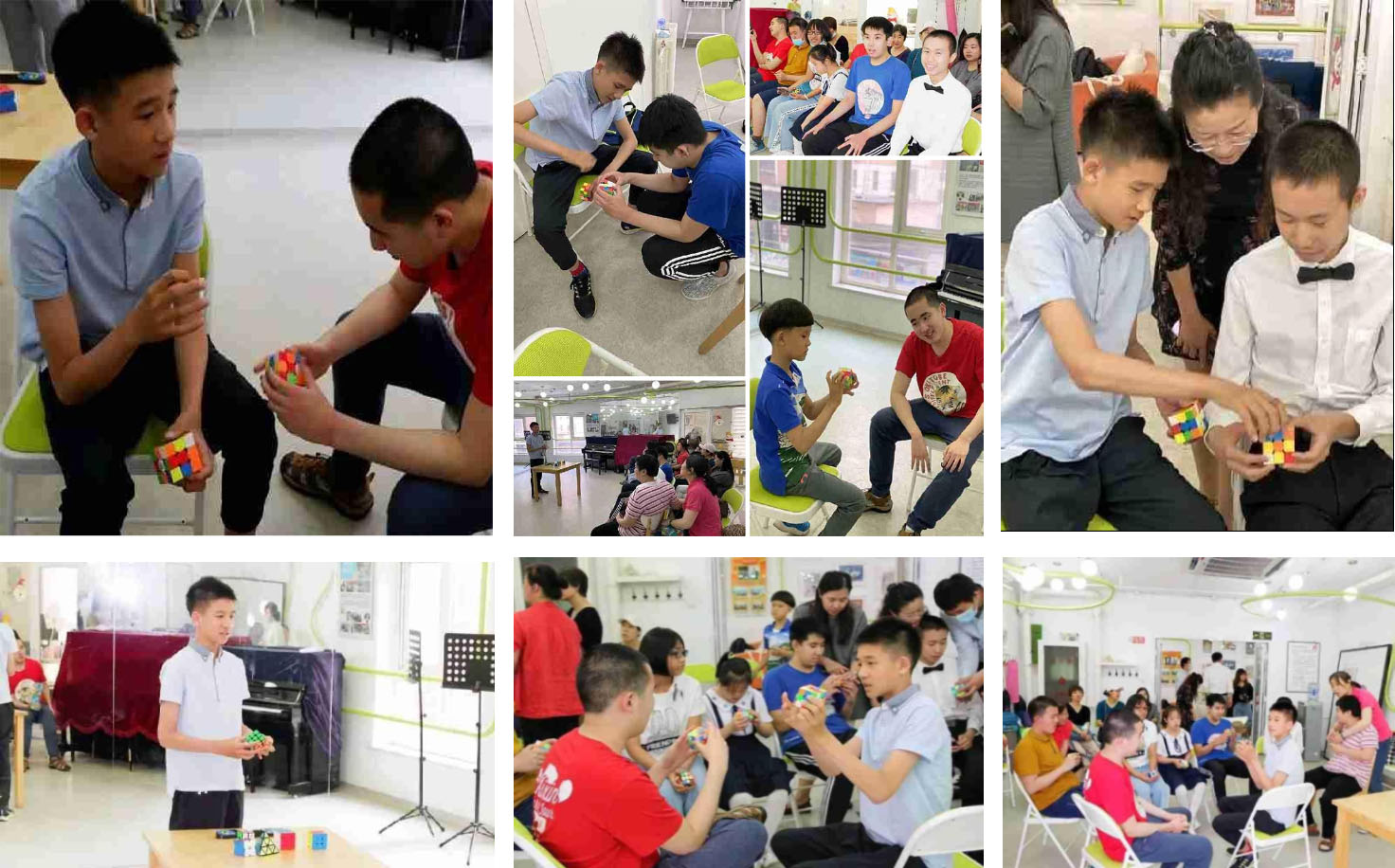
- 2019
November 23, 2019
During the “Care for Autistic Children” charity sale at WAB School, art pieces created by Golden Wings’ autistic children raised CNY 24,150 for Golden Wings.
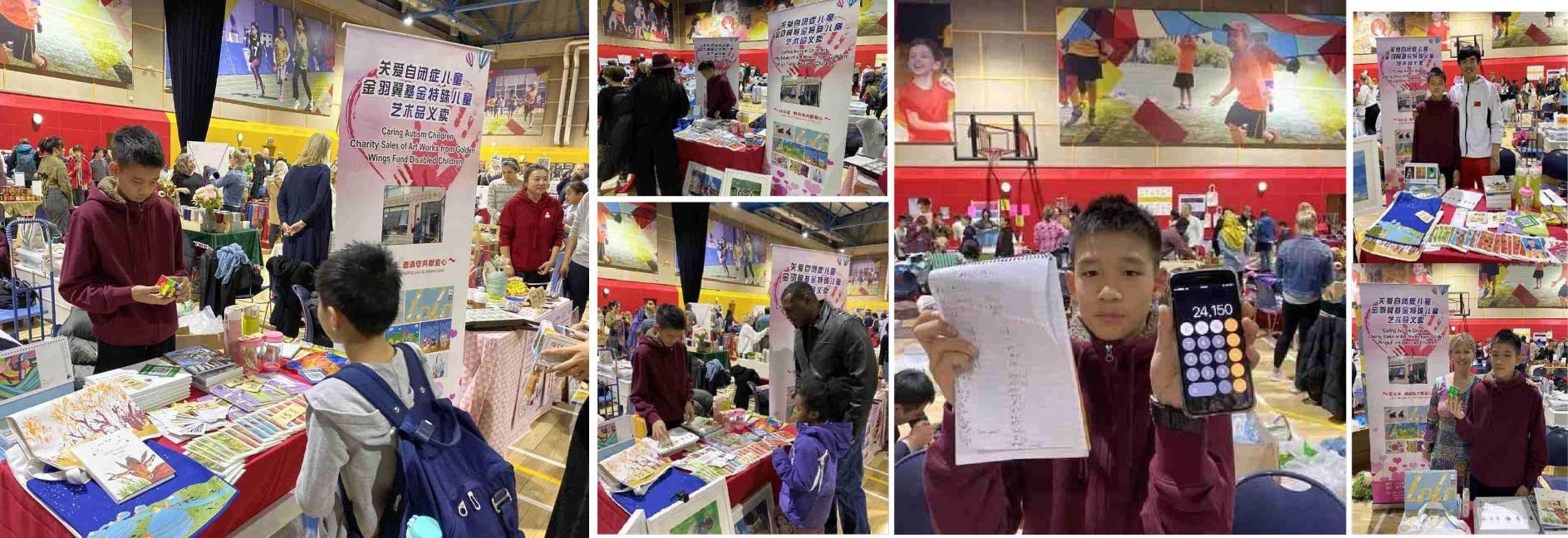
November 8, 2019
Ethan interviewed Ms. Junru Zhang, founder of the Golden Wings Art Rehabilitation Center for Disabled Children. Together, they developed a plan for regularly teaching autistic children to solve the Rubik’s Cube. This initiative, called the "Small Cube Big World" project, officially began that day. The project reflects the belief that learning to solve the Rubik's Cube can boost cognitive and motor skills, fostering self-confidence and a sense of achievement.

August 2019
Ethan visited four Hope Primary Schools in rural Xiahe County, located in the Tibetan Autonomous Prefecture of Southern Gansu Province. Speaking to hundreds of children, Ethan delivered a speech titled "Can the Rubik's Cube Change Lives?" Using the story of Max Park, an autistic individual who became a Rubik's Cube world champion, Ethan encouraged the students to pursue their interests passionately, showing how dedication can lead to incredible personal growth and accomplishments.
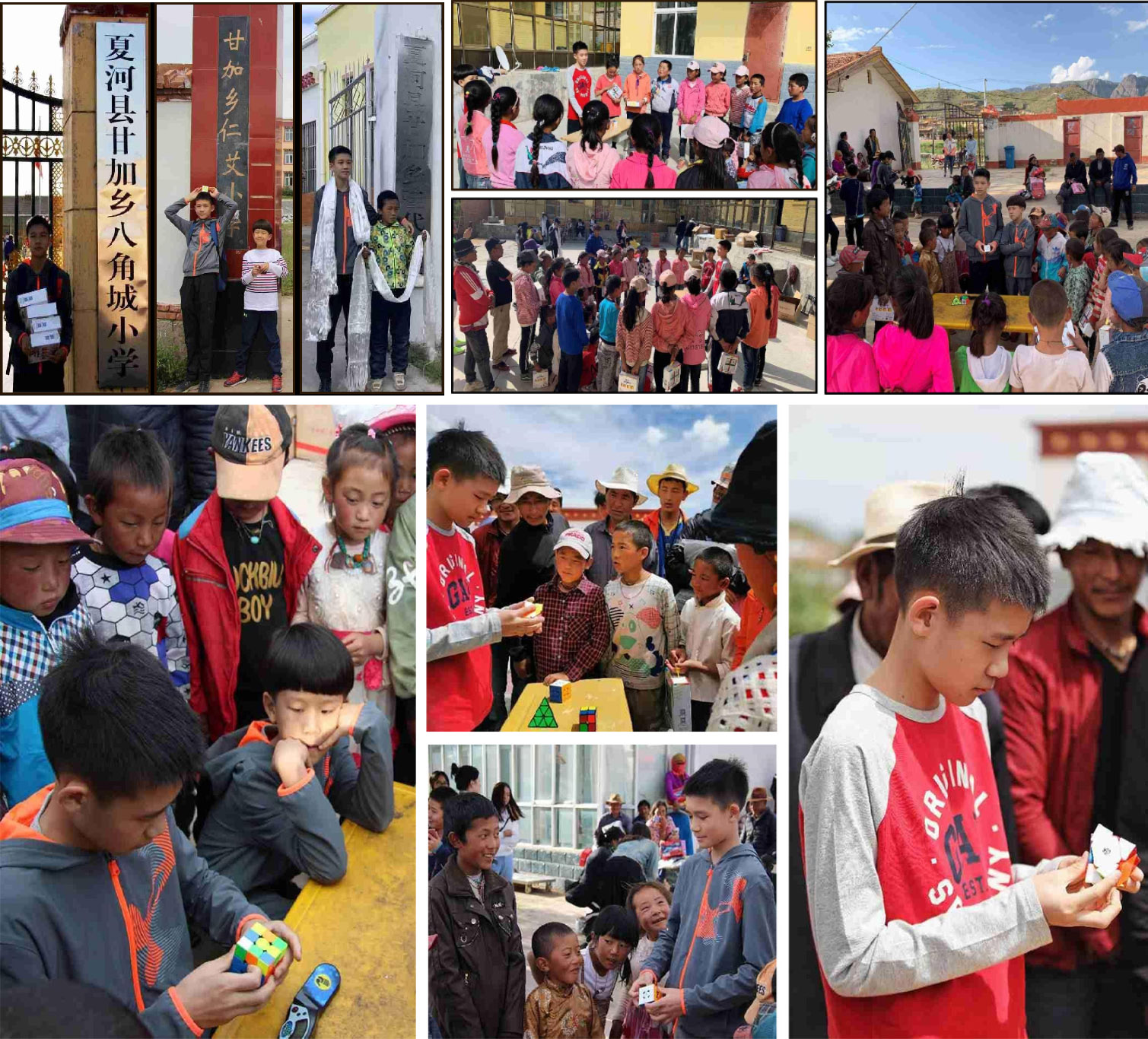
May 12, 2019
On Mother’s Day, Ethan gave an inspiring speech titled "Small Cube, Big Love" at an event for autistic children and their families. In his speech, Ethan shared Max Park’s journey to the Rubik’s Cube World Championship, highlighting how the cube became both a tool for problem-solving and a medium for expressing passion. His story aimed to inspire both children and parents, demonstrating the profound impact that dedication to a hobby can have on personal development.
